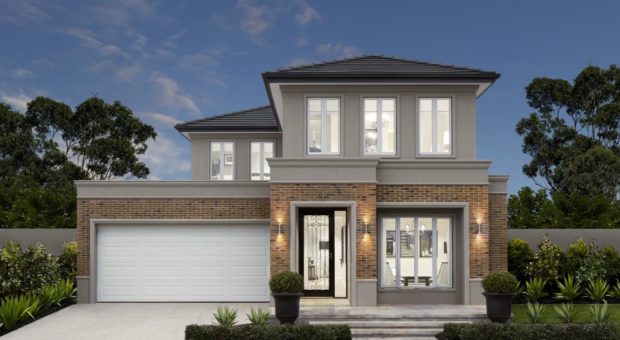8 Things to Consider When Designing Your New Custom House
If you have the opportunity to build and design a customized home, why wouldn’t you take it? You get the final say on all design choices, and you’ll be living in a home that no one has lived in before. But this is a hefty undertaking with a lot of important considerations.


1. Garage Placement
This probably isn’t the first thing you think about when building a brand new, custom home, but it’s critical. The attached garage is essential to the structure of your home, and you want it in the right place.
This is particularly important if you have a small lot. Consider these stylish new homes and place it on the main level with the rest of the home above it. It creates a striking picture from the outside with amazing functionality.
2. Now and the Future
You might only need two bedrooms and one bathroom at the moment, but what about when kids come along? Or perhaps your mother will need to move in when her health fails. If you’re building a home, you’re expecting to be here for some time, so plan for the future.
Many homeowners will build a home with an unfinished basement. This reduces the cost of the structure at first but provides the opportunity to expand in the future. Finishing a basement can maximize your home’s value, so you get the most out of the property long term.
3. Exterior Siding Materials
Selecting paint colors is easy, but choosing your siding is another matter. There are a dozen options, each with their pros and cons. Discuss the pros and cons of each siding material with your builder to choose the right one for you.
Your budget is a key factor, as you may not be able to afford more expensive options like brick. Fiber-cement siding is also more expensive, but it’s the most recommended siding option as it recoups 90 percent of its value, has the look of wood without the downsides, and will last twice as long as other siding options.
If you’re on a budget, Max Bumgardner, sales manager for a siding and remodeling company, tells HGTV that vinyl isn’t a bad option. “The technology has changed dramatically, even in the last five years,” he says. “All the manufacturers are competing to offer the best product.”
4. Room Position
The positioning of each room will make a huge difference in your comfort. For example, your bedrooms should be away from noise and traffic, so that you and your children can sleep peacefully. It should face away from the street, so passing car lights don’t shine into your window at night.
The placement of your kitchen, bathrooms, and laundry room matter as well. You don’t want to trek through the house to bring in groceries, send guests to an upstairs corner to use the bathroom, or climb three flights of stairs to do a load of laundry.
5. Location
You can change many things about your home in the coming years, but you can’t change the location. Choosing a neighborhood that you like with great schools, appropriate proximity to shopping and medical facilities, and low traffic are key, particularly for resale value.
Raegan Greer of the Forbes Real Estate Council also stresses the importance of choosing good land for your project.
“The lot or land you select may be a variable that is simplistic or complicated, depending on how you made your first three decisions,” she writes. “Trees, topography, size, view and costs all may enter into this choice. You’ll want to ask a lot of questions, starting with standard as well as premium lot pricing, tree placement with the floor plan under consideration, and easements/setbacks to be aware of on the property.”
6. The Builder
Hiring the right builder is critical to a successful project. You need a builder and architect that see your vision and will work within your budget to make it a reality.Screen your builder carefully. Choose someone with a demonstrated track record that you can trust.
7. Personal Preferences
One of the most important things for anyone designing a custom home is getting what you like. Your builder will deliver this if you know how to articulate your wants. One New Jersey architect says he asks his clients to bring examples and photos of the elements they like and dislike in a home, so he can better visualize their desires.
“Knowing what a client doesn’t like is just as important as knowing what they do,” he tells HomeBuilderDigest. “As an architect, I get clues for the design direction from both.“
8. Landscaping
When you’re caught up in the design of the house itself, you can’t forget about the landscaping. A beautiful home can be overshadowed by an ugly lot.
Most builders don’t provide landscaping for you, so you’ll need to hire a landscape architect for your yard. The result will be icing on the cake of your beautiful new home.